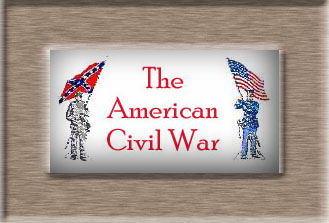It's often said that the American Civil War was entirely and only about slavery. Is there another view?
Yankee Canards
Was the ante-bellum South a primitive, backwards, illiterate, violent culture?
Mulattoes
Numbers and significance of the Southern mulatto population
Northern Racism
De Tocqueville observed that "race prejudice seems stronger in those states that have abolished slavery than in those where it still exists, and nowhere is it more intolerant than in those states where slavery was never known"
Slavery as History
How can you make an honest inquiry into American slavery without understanding the mindset of slave-owners? How can you do that without being yourself a racist?
Rebel View
Early 19th century American politics and political culture as it was seen by many Southerners
Lincoln
Abraham Lincoln was perhaps the greatest writer in American political history. Writers are great, in part, because of their ability to disguise what they really intend.
Lincoln and Race
"You and we are different races. We have between us a broader difference than exists between almost any other two races."
Thaddeus Stevens
The life and times of Pennsylvania's fiery anti-Southern Congressman
Sidelights on Christiana
The Christiana Riot of 1851 is sometimes described at the first skirmish of the Civil War
1860 Election
Even if all the Democrats had united behind one candidate, the Northern regional ticket would have won
Secession
The wire-pulling over the Morrill tariff bill in 1860 showed the party of the abolitionists cynically using a legitimate government mechanism to gain power in a presidential election.
Legal Issues
Secession was legal under the Constitution, based on its ratification by the states in 1787 and 1788
Cornerstone Speech
Alexander Stephens "Cornerstone Speech" in context.
Upper South
"States rights" is dismissed as a red herring argument, yet the Upper South states seem to have left the Union for this reason.
What Cost Union?
Lincoln saved the union, but at a terrible cost to America's democracy and culture of freedom.
CONFEDERATE WAR
Up from History
The evolving historical view of the American Civil War.
Soldiers and War
Responding to the slander against Southern military effort.
Why the South Lost
Was Northern victory inevitable?
War Effort
The South put forth a tremendous effort for independence.
The Southern Press
Journalism and Southern civil liberties.
Desertion
An examination of the myth of massive Southern desertion.
A Closer Look
Desertion by the numbers; case studies North and South.
Ella Lonn
The original study of desertion in the Civil War.
Conscription
Southern conscription was the first attempt to create a modern military system.
Draft of 1862
An overlooked draft in the North that was underway almost simultaneously with the first rebel conscription.
Albert B. Moore
An important source for the "South against the South" thesis.
Maryland
The Lincoln Administration's crackdown on Maryland.
Occupied Maryland
A sampling of federal documents dealing with martial law in Maryland.
Maryland Peace Party
A pamphlet from the anti-government forces in Maryland.
Habeas Corpus
The suspension of Habeas Corpus in the North by the Lincoln administration during the war.
Copperhead
A Northern newspaper editor fights the administration after it closes down his press in response to anti-government articles.
"Keystone Confederates"
Some Pennsylvanians fought for the South during the Civil War.
AFTER THE WAR
Southern Populists
"You are deceived and blinded that you may not see how this race antagonism perpetuates a monetary system which beggars you both."
Coatesville Lynching
Zach Walker was burned alive by a white mob in Coatesville, Pennsylvania.
York Riots
A little-known but violent 1960s race riot in York, Pennsylvania.
New South
Slavery, racism, and segregation were national experiences.
New Lost Cause
A native-born Southern white woman worked with native-born Southerners, black and white, with a shared sense of decency, to accomplishing the work of desegregation in Mississippi.
Flag dispute
From 1879 to 1956, the Georgia state flag was essentially the "Stars and Bars." If you were going to link any state flag with slavery, that would be the one.
Jonathan Kozol
"So two-tenths of 1 percent marks the difference between legally enforced apartheid in the South 50 years ago, and socially and economically enforced apartheid in New York today"
BIBLIOGRAPHY
sources consulted


